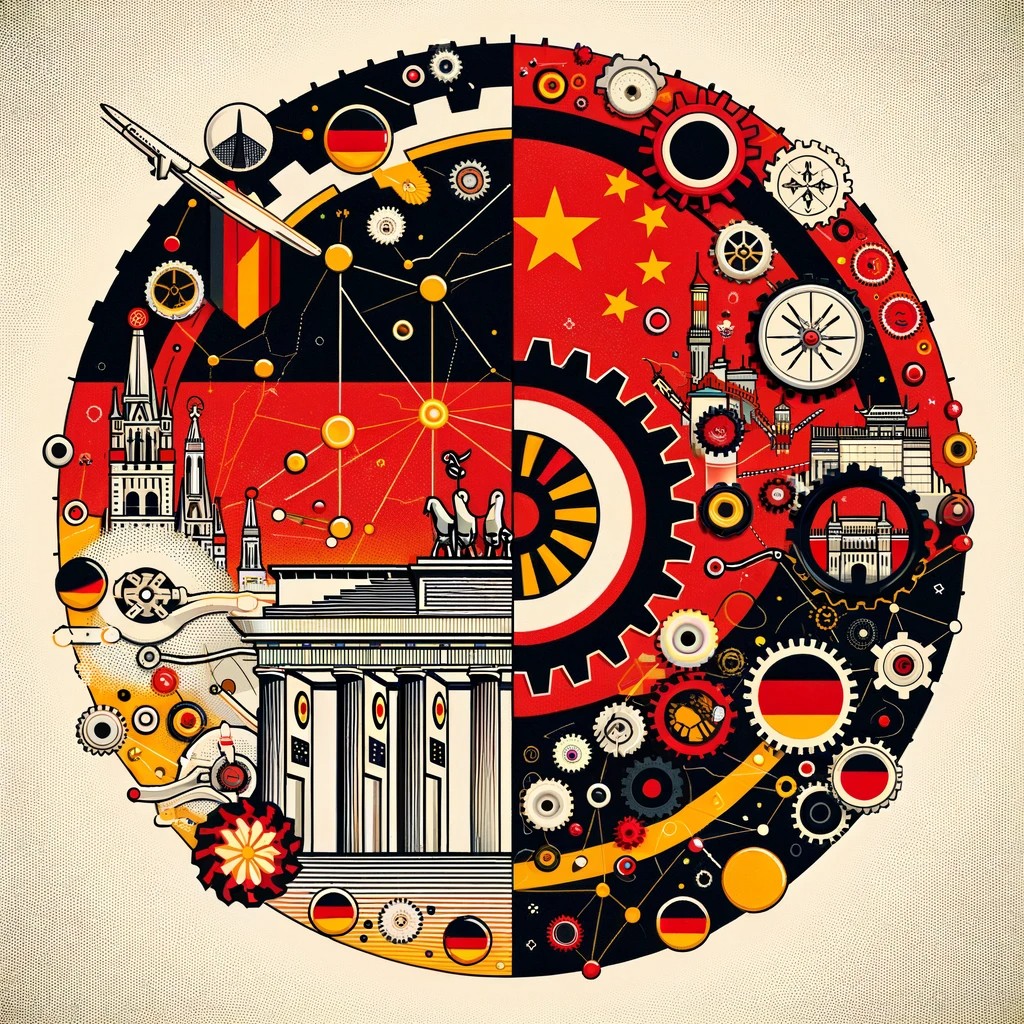The dynamics of international relations are seldom black and white, and nowhere is this more evident than in the intricate dance between Germany and China. A relationship that was once perceived as a win-win scenario is now under the microscope, with Germany reassessing its stance towards a nation that has been its top trading partner for seven consecutive years. The shift in approach, encapsulated in its comprehensive China strategy, is not just a policy update; it’s a mirror reflecting the changing face of global diplomacy.
Germany and China Economic Ties: A Double-Edged Sword
Germany’s economic reliance on China is a story of intertwined fortunes. With a trade volume nearing €300 billion, the connection is more than just a line on a ledger; it’s a vital artery of Germany’s economic wellbeing. However, this relationship isn’t without its perils. Germany’s trade balance with China has tipped towards a deficit, sparking concerns over economic vulnerabilities. The pivot to a deficit is not just a statistic; it’s a wake-up call highlighting the changing dynamics of global trade.
German businesses are inextricably linked to the Chinese market, with investments and manufacturing deeply rooted in the Asian giant. The stark contrast in direct investment figures, with Germany investing over €100 billion in China compared to China’s €4.6 billion in Germany, paints a picture of economic asymmetry. This disparity isn’t just about numbers; it reflects a deeper narrative of the sick man of Europe’s economic strategy and global positioning.
Navigating the Political Tightrope
The political tightrope that Germany walks in its relationship with China is as complex as it is crucial. The growing perception of China as a competitor and a security threat, alongside its established role as a vital economic partner, presents a diplomatic quandary. Germany’s approach to China is not just a balancing act; it’s a strategic maneuver in a global chess game of power and influence.
The rise of the far-right Alternative for Germany (AfD) adds another layer to this complex relationship. The party’s criticism of Germany’s China strategy, lambasting it as a smokescreen for implementing ‘green-woke’ ideology and serving US geopolitical interests, is not just political rhetoric. It’s a reflection of the diverse and often contradictory views within Germany on how to engage with a rising superpower.
The skepticism towards China in German public opinion, with a significant majority viewing China as an untrustworthy partner, is more than a sentiment; it’s a barometer of national mood. This perception ties into the broader narrative of global geopolitics, where trust and reliability are as valuable as economic gain.
Between Economic Interests and National Security
The challenge of resetting German policy towards China is akin to navigating a ship through turbulent waters. The dual nature of the German eagle, powered by industrial prowess yet constrained by a lack of a strategic culture, encapsulates the nation’s post-war identity. Germany’s reliance on its economic strength, while entrusting security to the US and NATO, has been a hallmark of its international role. However, this approach is being reevaluated in the wake of recent global events, including Russia’s invasion of Ukraine.
The emergence of the term ‘de-risking’ in Germany’s policy vocabulary is not just a buzzword; it’s a strategy reflecting a shift towards diversifying economic dependencies. The concept, encompassing a move away from over-reliance on China, is a response to the realization of the risks embedded in such a lopsided economic relationship. This strategy is not just about economic prudence; it’s a strategic pivot in response to the evolving global order.
Yet, the push for ‘de-risking’ meets resistance within the German business landscape. The deep-seated economic ties with China, exemplified by the heavy involvement of German automakers in the Chinese market, are not easily untangled. This reluctance to reduce dependence on China isn’t just about profits; it’s a testament to the complexities of global supply chains and market dynamics.
In the end, Germany’s journey towards redefining its relationship with China is more than a policy shift. It’s a reflection of a nation grappling with the realities of a changing world, where economic interests, national security, and global diplomacy are inextricably linked.





